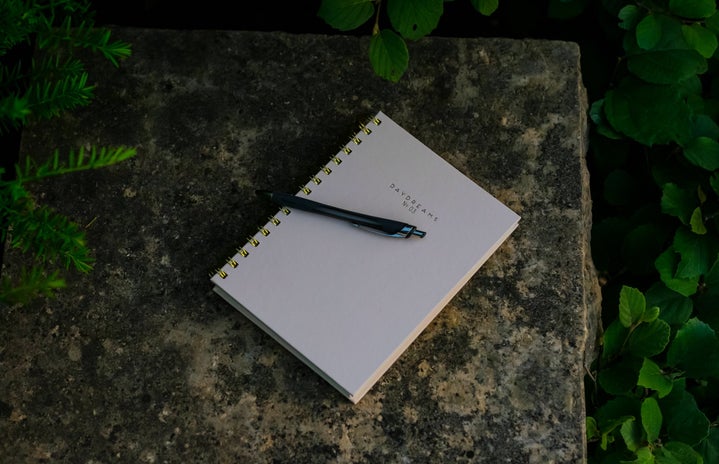Journaling is a challenging hobby. Oftentimes, it takes a lot of patience and even a lot of courage. It forces me to sit down, stop moving, and acknowledge all of the feelings that I have to push aside throughout the day.
Last week, I was sitting in class listening to my professor speak. I couldn’t stop my mind from wandering. Unfortunately, I was not daydreaming (one of my favorite pastimes). In fact, my mind was far from empty. I was thinking about all of the things I had to do that week, and all of the things that were happening in my life. My mind was filled to the brim with thoughts.
Does anyone else know that feeling? The feeling where 10,000 thoughts rush into your head at once and you feel like there is no possible way to straighten things up, or clear them all out? As college students, we all have a million things to do and a million things to think about. From internships to athletics, and from sororities to schoolwork, sometimes it feels like we’ll never catch a break.
This newfound business is what encouraged me to start journaling at the start of freshman year. Before that, I had about five notebooks in my room. They all had a mess of scribbles on random pages, but no clear thoughts or consistent entries. I made the excuse that I was too distracted to fill a whole journal, or I would question the value of the hobby.
Presently, I don’t know what I would do without it. Just like everyone else, my schedule is full. I don’t usually have time throughout the day to consider my feelings, or to allow myself to truly process them. If my brain feels full I don’t have the time to untangle the knot of thoughts or reminders sitting in there. So, my solution is to come home at the end of the day and write it all out.
Traditionally, journaling is viewed as mushy-gushy-daydream-focused nonsense. Don’t get me wrong, I totally buy into the mushy stuff (I’m a hopeless romantic). I could sit and write about my daydreams for hours. But that’s not what journaling has to be. For me, journaling looks like this:
“Today was busy, and here is a list of things that happened.”
“I felt anxious yesterday, and I’m going to try to figure out why.”
“Here is a list of things I need to get done today.”
Journaling allows us to see the thoughts inside of our heads on paper. To me, it is a way to tidy up my mind and, most importantly, it encourages me to work through my emotions, and acknowledge those emotions in the first place.
Oftentimes when I tell people I like to journal for relaxation, people will say to me “But I’m a terrible writer,”or “I’m too impatient for that”. First of all, you don’t have to be a good writer by any means. Journaling is a tool used just for you, and it can be rambling nonsense if that is what helps you feel better. If you are someone who has trouble focusing, try journaling like this:
-
Wait until you are completely done with your day–that is usually right before bed for me.
-
Make yourself a cup of tea or hot chocolate (not coffee–don’t make yourself more jittery).
-
Turn off any terribly bright lights. I like to just keep the fairy lights around my bed on.
-
Light a couple of candles, or burn incense.
-
Turn on soft music that will relax you (unless you’re writing about something that angers you, then you should blast heavy metal).
This is what I do every time I write. It used to be something I had to force myself to do, and now it is something I look forward to during every crazy day that I experience. Last month, I actually filled my first journal. It took me a full year, but when I look at it I feel kind of…proud? It is something that I stick with, and it is something that keeps me on track. Most importantly, it’s something that everyone can, and should, do.



